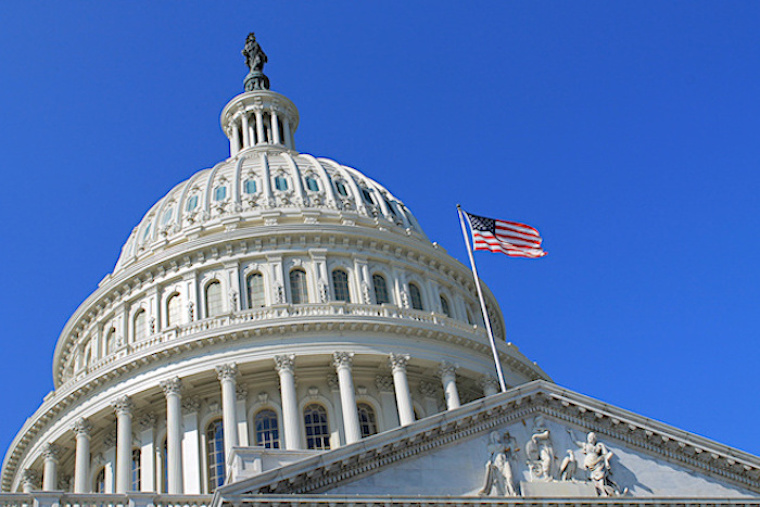
(GA Recorder) — The state economist predicts Georgia’s economic growth will slow this year as federal coronavirus aid dries up and the state’s economy works to pick up the slack.
“Not a recession, just a slowdown as we sort of struggle with replacing all the free money with actual productive income earned in the economy, but we should do it,” said Jeffrey Dorfman, a University of Georgia professor who has served as the state economist under Republican Gov. Brian Kemp.
Dorfman offered his economic outlook for the new year to state lawmakers Tuesday as the governor handed off his proposed $30.2 billion budget for next year. Budget hearings will continue Wednesday.

“When you look back over the last two years, we’ve all had to make some very tough but necessary decisions to ensure this great state could withstand whatever we might face and we’ve hunkered down,” Kemp said to lawmakers. “And as you can tell, we’ve emerged stronger because of it.
“Despite the uncertainty of the last two years, I’ve never been more optimistic about our state,” he said.
The governor’s revised spending plan through June has also swelled to about $29.9 billion – up about $2.6 billion since originally approved last year. That doesn’t include the $1.6 billion Kemp wants to send back to taxpayers through refunds ranging from $250 to $500. The governor, who is running for reelection this year, also packed big-ticket items like a $5,000 pay hike for state workers into his budget offering.
The state budgets have ballooned in response to surging state revenues, due partly to the federal relief money.
But Dorfman tempered expectations for future revenues after a string of eye-popping monthly reports, including one month where tax collections were up a whopping 68% over the same month in 2020.
On the whole, last year’s revenues were up 13.5% – or $3.2 billion – over a tumultuous 2020 when revenues initially plummeted as the pandemic brought the economy to a crawl and unemployment spiked to a record high. In the summer of 2020, lawmakers cut $2.2 billion from the budget.
Revenues this year have so far also continued to climb, with tax collections over the first six months up 18.1% – or $2.3 billion – over the first half of the last budget year. Last month alone, revenues were up 24.3%, according to a new report released Tuesday.
But the state economist predicted economic growth to slow to a “more normal pace.”
“We’re going to be comparing revenues to when the economy was very strong in 2021, and so it’s going to be much tougher to beat the sales tax and the income tax collections that we had last year,” he said.
On the upside, Dorfman pointed to the $75 billion Georgians have socked away during the pandemic. He said the average savings rate has since dropped to pre-pandemic levels, which he attributed to the “free money from Washington D.C.” ending. He is referring to the federal stimulus checks and extra unemployment payments, which Georgia ended early last June.
“That’s about two months’ worth of normal spending. So, Georgia consumers have a lot of money available to spend. They spent a fair bit on Christmas this year, but they still have an awful lot left, and that is going to support our economy going forward,” Dorfman said.
The state economist said many of the people who were able to boost their savings were the state’s poorer residents.
“This is a case where we see actual, considerable improvement in the financial situation of people at the bottom of the income distribution,” Dorfman said.
For now, though, many Georgians continue to get by on those savings as the pandemic flares up anew with the omicron variant. Dorfman said there is also significant churn in the workforce, with workers moving on to better jobs or employers firing the employees they took a chance on in a pinch. He said he expects workforce participation to increase as the pandemic recedes.
“We are hiring new employees at exactly the same rate as they are quitting or being fired, and so that means our employers are working really hard just to sort of tread water and keep the number of employees and job openings even,” he said. “We just can’t get ahead.”
The labor shortage has affected state agencies as well. The Georgia Department of Transportation, for example, shed more than 600 people in the last year, with more than half of those workers quitting.
Kemp is proposing to help combat the problem with the $5,000 increase and other sweetened perks like an increased 401(k) match. But it may not be enough, some of the agency heads cautioned.
As an example, Agriculture Commissioner Gary Black told lawmakers about an employee who left to do the same state job in Iowa for $60,000 that he was being paid $36,000 to do in Georgia. Black is pushing a strategic plan for reviewing his agency’s wages.
“I would suggest to all of us that the ship of state of Georgia is sailing toward an iceberg. and that iceberg is who is going to run this government five and 10 years from now,” said Black, who is also a GOP U.S. Senate candidate on the ballot this year. “The things that we’re doing with this package are very good, but it is going to be an ongoing thing that all of us are going to have to be committed to address.”







